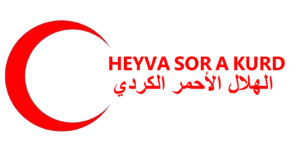“Diarrhea awareness” campaign continues for the second week






The medical point in Sere Kaniye camp in Hasaka city is the last point opened by Kurdish Red Crescent to provide emergency service and primary health care (internal, women and children clinics, ambulance department, pharmacy- health education) for about 11,000 displaced people from Sere Kaniye City in the camp.







Coronavirus has turned the world’s scales since its debut, causing scare among people. However, in the midst of all this, there are optimistic stories of people who have recovered from the disease.
“Uncle Abdulaziz”
Uncle AbdulAziz (66) yeas old recounts his experience with the disease, how he recovered from it, and the wrong experiences that many people are going through that we must not repeat.
2020 was a year full of extraordinary events for our work in the health sector, With the spread of Covid-19 virus, we gave an important and wide space to reduce the disease through several mechanisms, the most important of which was case management by preparing centers (3 centers) and departments of (5 hospitals) and a private hospital (Covid-19) in Al-Hasaka, where the number of beds in all facilities reached to more than 5,000 beds including beds for intensive care, an operating desk and rapid response teams and ambulances specilzed for the refeal of critical cases, and health education teams.
Also we opened new medical points for primary and secondary health care in each of (Tal Hajar / Hasakah City – Washokani Camp – Sere Kaniye Camp – Hamrat Al-Ghanam / Al-Raqqa City), in addition to three emergency centers in each of the cities of (Hasaka – Derik – Raqqa).
In addition to the continuous work of other sectors such as WASH, protection, relief and shelter sectors.
We started several evelopment and stabilisation projects such as road lighting project, proper disposal of medical waste, prosthetic center and physical treatment and many other activities…
The total number of beneficiaries of the Kurdish Red Crescent services during 2020 reached (1,649,826).
Qamishlo city /Al-Antarya neighborhood
A1- 00963 935 288 541
A2- 00963 949 359 179
A3- 00963 949 356 870
A4- 00963 932 125 933
